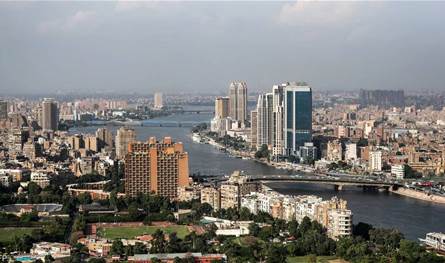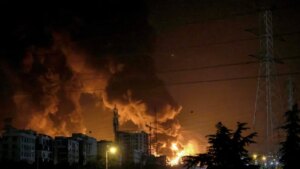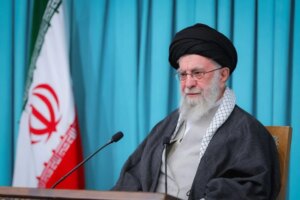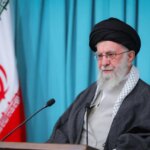
Sharm El-Sheikh returns to the forefront of the event as a platform to redraw the landscape of Gaza and the region, in negotiations that carry within them more than stopping the war to testing the new balance of power in the Middle East. The participation of prominent figures such as Qatari Prime Minister Mohammed bin Abdul Rahman Al Thani, Israeli Minister of Strategic Affairs Ron Dermer, and Turkish Intelligence Chief Ibrahim Kalin does not only express the weight of the new round, but rather an organized attempt to produce a political understanding that reflects the post-war phase, not just a temporary truce.
In the background of the scene, the Qatari and Egyptian mediation is moving within a complex network of American pressures, whose goal is to push the parties towards a comprehensive agreement that puts an end to the war that has exhausted everyone. However, the Hamas movement, aware of the shifting balance of power after two years of confrontation, is adhering, according to its sources, to a permanent ceasefire and a complete Israeli withdrawal, and at the same time seeks to extract indirect political recognition of it as a legitimate negotiating party. Therefore, its request for international guarantees from US President Donald Trump and the sponsoring countries came as a condition for any agreement, in what appeared to be an early test of Washington’s ability to impose real commitments on Benjamin Netanyahu’s government.
On the other hand, Tel Aviv is dealing with this round with the logic of controlling the pace of the negotiations, trying to avoid any clear political commitments. Israeli reports talk about a limited mandate for the negotiating team, and a willingness to accept a long truce without getting involved in a final agreement that establishes a complete withdrawal or opens the door to a permanent settlement. This reflects the internal dilemma facing Netanyahu, who is trapped between the pressure of the extreme right, which refuses any concession, and the pressure of the security establishment, which has come to see the continuation of the war as a strategic threat.
As for Washington, Trump is seeking to present himself once again as the architect of new Middle East understandings, taking advantage of the post-war climate to launch a peace project that reorders priorities in the region. His recent speech, in which he talked about tremendous progress towards an agreement, is not just political optimism, but rather an attempt to craft the image of a president capable of making a historic breakthrough that will return America to the center of decision-making in the region after years of relative decline. Hence, the White House is betting that the success of the Gaza Agreement will open the door to reviving the path of the Deal of the Century with an updated version, based on a comprehensive settlement that includes Gaza, the West Bank, and regional recognition of Israel within an expanded Arab framework.
But behind this American optimism lies a real dilemma: How can a field agreement be translated into a permanent political settlement in the absence of mutual trust? Palestinian sources confirm that any agreement without clear American guarantees will be fragile, because the experience of past years has proven that Israel often backs down from its commitments once the military or political pressure is removed. Therefore, Hamas is demanding written and declared guarantees from Washington, fearing that the agreement will turn into a temporary truce that Israel will use to arrange its situation on the ground and then return to escalation.
On the other hand, Cairo, Doha, and Ankara realize that what is happening in Sharm El-Sheikh goes beyond Gaza. The current negotiations are in fact a test of the region’s ability to produce a new security equation that balances Iranian, Turkish, and Arab influence. Therefore, Cairo seeks to capitalize on the momentum created by Trump’s plan, benefiting from a relative consensus between Arab and Islamic capitals on the need to end the war, to consolidate its position as the main mediator in any future settlement.
At the Israeli level, there are increasing voices that consider that continuing the war is no longer a realistic option. Prominent figures such as Ami Ayalon and Ehud Olmert are now speaking publicly about the government’s failure to achieve any of its goals and the necessity of reaching a political settlement that leads to a two-state solution. This shift in discourse reflects a growing awareness in the security and political establishment that the military project has been exhausted, and that Israel can no longer bear the cost of open confrontation.
In this context, Sharm El-Sheikh appears to be facing a decisive moment. Either the negotiations will lead to an agreement that outlines the features of a new political phase that will remove Gaza from the logic of permanent war and re-arrange the region’s priorities, or it will turn into another station added to the series of temporary truces that have defined the Palestinian-Israeli conflict. The delicate balance between American guarantees, Netanyahu’s internal calculations, and Hamas’ adherence to post-war political legitimacy will determine whether Trump’s plan will turn into a viable reality, or whether it will remain a dead letter in the record of American initiatives that were born great and ended in nothingness.
The post Will the Sharm El-Sheikh negotiations be a gateway towards a comprehensive settlement in the Middle East? appeared first on 961 today Lebanon today.


















